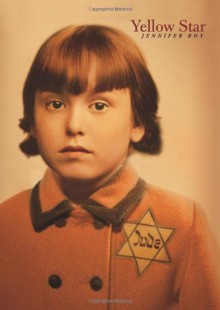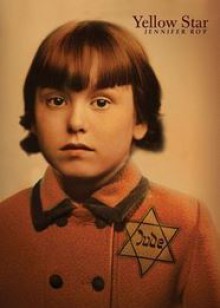

The premise sounded better than its delivery.
The story is of the Lodz ghetto in Poland, and of the 270,000 Jews that were put in, only 800 survived. 12 were children, and Sylvia (the author's aunt) was one of them. This is the retelling of her experience as a young child of 4 when the ghetto was established, and aged 10 when they were liberated.
It's a fascinating premise, and if I retell it here, it makes a great story. It's written in free verse, each line is 3-5 words, 8-10 lines per "paragraph" and maybe only 3 or 4 paragraphs per event. Each event is told in chronological order, but are pretty disconnected, jumping from scene to scene. There isn't much in the way of transition, just a string of memories and events. Because it's told from a child's perspective, it struck me as very YA. The book only took me about an hour to read because of the way it's written. I think it would make a good introduction to WWII for a child who is mature to read about such things. The YA-nature of the book was really unexpected for me, which is why I gave it the lower score. If it was a bit meatier, I think I would have enjoyed it more.

"In 1945, the war ended. The Germans surrendered, and the ghetto (Lodz, Poland) was liberated. Out of more than a quarter of a million people, only about 800 walked out of the ghetto. Of those who survived, only twelve were children." This book is the story of one of these children. Syvia was in the ghetto from age 4 to the day before her 10th birthday.
This book was formatted in a kind of free verse. It reminded me of poetry. Poetry of life and of horror. I read it in one day, but I had to take several hours between readings. The imagery is sharp and even detailed. The verses are Syvia's remembrances and are particularly poignant as the voice of a child. You can see her growing up and wondering why, just because she is a Jew, she was hated so much.
One scene really was hard for me. She is walking by the fence in the ghetto and sees a lady step outside her house with her pet dog. Syvia tells us in her thoughts that even if someone got out of the fence and wasn't found and shot they still would have been turned in by this lady that treats her animals better than she would the people just a few feet away are who are being starved to death. Syvia also goes on thinking that she wished she could have a pet, but than she thinks that even if they were allowed, the pet would be killed for food.
I find it hard to read books about atrocities, but I know that we need to know the stories so that we can keep it from happening again. This book is an excellent way to teach children about this time in history. Highly recommended!